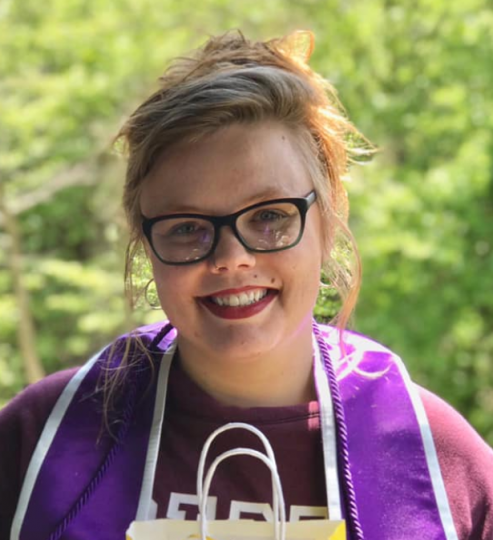 Youth Voices are Essential in Reforming the Child Welfare System
Youth Voices are Essential in Reforming the Child Welfare System
June 17, 2020
By Alison Paxson, Policy Fellow
Over the last three months, Children’s Defense Fund-Ohio hosted conversations to highlight key findings and research from this year’s report on Opportunity Youth, Cultivating Opportunities for All Youth to Flourish in Franklin County. One of our report’s chief findings is that it’s critical to elevate youth voice in policy and in decisions that impact them, which we did during our final webinar in this series on Friday, June 12th.
Cloé Cooper, a young advocate and former foster youth, described measures that we must take to support foster youth and promote equity in our systems during a public health emergency. Cloé is the Director of Outreach for the central Ohio nonprofit, AgedOutt, a member of the youth-led advocacy group for foster youth, Action Ohio, and also an affiliate of the Columbus State Community College’s Scholar Network.
Kim Eckhart, CDF-Ohio’s KIDS COUNT Project Manager, began the conversation with an overview of Annie E. Casey Foundation’s research, Fostering Youth Transitions, which discusses innovation solutions Ohio must pursue to address negative outcomes former foster youth face statewide. Further, Black youth are disproportionately bearing the burden of these negative outcomes. The racial makeup of children in custody (top row in the graphic below) compared to Ohio child population (bottom row), clearly shows the over-representation of children of color in the child welfare system.
Improving outcomes for former foster youth starts with empowering those in custody to speak out against the harmful actions of the adults charged with caring for them.
“While I will not go into detail about the things I witnessed and endured while in the custody of Franklin County Children Services,” Cloe stated. “I will say that what haunts me the most is the feeling of helplessness I embodied as I tried to help myself and my sisters in care make it through our daily lives. Fearing repercussion, there are countless incidents that went unreported. Those that were, were swept under the rug or myself and my sisters were severely punished as a result of speaking our truth.”
“It is imperative to the wellness of children in care that the state of Ohio have a Foster Care Ombudsman,” Cloé said during the webinar, outlining one recommendation. “The mental, emotional and physical health of children in care will remain at risk if there is no neutral outlet for reports to be made in the event of neglect or abuse. Providing a safeguard and emotional wellbeing to those whose lives are entrusted to the foster care system will help prevent mental and physical illness and the number of AWOL children, those of which are at all time high risk for Human Trafficking.”
Improving outcomes for youth also means giving them a longer off-ramp to transition to adulthood. Housing is the key to stability when youth are starting out at low-wage jobs, pursuing higher education or becoming parents. Almost one in three former foster youth report experiencing housing instability by age 21. Cloé described the critical partnerships that leaders in local housing authorities and child welfare agencies must develop to establish the Foster Youth Independence program, which offers federal funding for housing vouchers to youth through age 23 who have aged out of foster care.
Key takeaways from Cloé’s presentation include the following action steps:
- Ohio should create a Foster Care Ombudsman Office in Ohio to act as an independent forum for the investigation and resolution of complaints made by or on behalf of the youth themselves and make appropriate referrals.
- Public child welfare agencies (PCWA’s) must maximize the success of the Foster Youth Independence program, and the youth-led group, Action Ohio, with whom Cloé is a member, gives offer a series of concrete steps for how to do so here.
- The moratorium established by Gov. DeWine during the pandemic preventing youth from aging out of foster care, should be extended, not to an arbitrary date, but linked to improved unemployment rate.
Cloé has done so much already in her young adult life to speak her own truth and to combat the conditions that once prevented her from doing so, ones that continue to lead to poor outcomes for youth in and aged out of custody today. Right now, during this crisis, we are all aware of the importance of having a strong, equitable, and adequately funded child welfare system. Cloé’s presentation offered many concrete steps we can take in order to improve the child welfare system so that our state can maintain the safety of all children, especially those in custody or formerly in foster care.
For a recording of this webinar, please click here.
For a copy of all of the slides used throughout each phase of this webinar series, please click here.
If you are interested in checking out the work of foster youth advocate and filmmaker, Selena Burks-Renschler, whose testimony advocating for racism to be declared a public health crisis was referenced by Cloe, please click here. This filmmaker highlights much of the content from her testimony in this short film.

